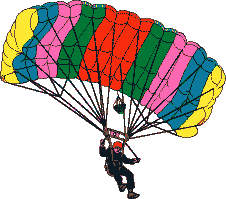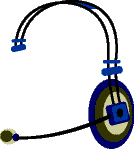Maintaining
Safe Aircraft
Since
ASRS introduced incident reporting forms for maintenance personnel in
the spring of 1997, we have received over 150 reports from mechanics,
and continue to hear from flight crews about maintenance-related incidents.
Following are some examples, beginning with a report from an air carrier
mechanic:
- [As part
of routine maintenance requiring an engine run to check for leaks],
I assisted by pulling some of the gear safety pins...then proceeded
to perform a quick inspection of the nose gear area. From my vantage
point in front of the gear, I did not notice the nose gear pin still
installed.
Another mechanic provides the
rest of the story:
- At the
beginning of the next night's shift, I was briefed that the aircraft
had returned to the airport because the nose landing gear wouldn't
retract. The mechanics found the nose gear safety pin still installed.
The safety pin was removed, and the aircraft was once again dispatched.
One reason the mechanics may
have failed to notice the safety pins is that the "remove before
flight" flags attached to the pins are often rolled up and tucked
out of the way to enable good visibility of the work area. Flags can also
blow up into the wheel well and become caught there. Solution: make certain
those flags keep flying until the aircraft is released back to the flight
line.
Static
Display
Flying the flags might have
prevented another return-to-land incident, as reported by a corporate
Captain:
- Early
morning departure from a dark ramp; I did not finish my walk-around
inspection, as I was interrupted by a passenger arriving early. I
never resumed my normal routine. On takeoff, I heard the First Officer
call, "You've got no airspeed." I then called, "Say
your airspeed." Came the reply, "I've got no airspeed either."
By that time, we had considerable speed, and...I elected to continue
takeoff. Airborne, I got the "ADC [Air Data Computer] failure"
light. We decided to dump fuel and return to base.
The aircraft had been inspected and washed the day before, and tape
had been left on the static ports and pitot tubes. I had not seen
it in the dark, and my pre-flight had been interrupted. No excuse!
It was CAVU this time, but what if it had been 200 feet and half-mile
visibility?!
A "remove before flight"
flag or long strip of "caution" tape attached to the tape covering
the static ports and pitot tubeswould have provided a visual warning to
ground and flight crews.
Half-Full
or Half-Empty?
Optimists and pessimists
alike can appreciate the difficulties a commuter Captain confronted
due to a half-cup of water:
- The First
Officer handed his nearly-empty cup of water to the Flight Attendant
(FA), and requested a refill. The FA dropped it on the center console.
Very little water spilled and we immediately cleaned it up. A few
minutes later, the cabin altitude began to fluctuate-climbing and
descending. We initiated a descent to below 10,000 feet. While descending,
the passenger oxygen masks deployed. The flight continued to our destination
without incident. Even though everything turned out all right, it
can never be emphasized enough: be very cautious with liquids around
electronic components.
 A
recent ASRS report reminds us that the "big sky" isn't as
big as we may think. A parachute-jump plane pilot explains in an ASRS
report:
A
recent ASRS report reminds us that the "big sky" isn't as
big as we may think. A parachute-jump plane pilot explains in an ASRS
report:
- After
takeoff, I told Center that we were 4-1/2 minutes until jumpers away,
and I confirmed that there was no traffic in the area. At 12,000 feet,
I made an announcement on CTAF that jumpers would be jumping in two
minutes. At one minute away from jumpers exiting the aircraft, a spotter
checked one last time for hazardous traffic. I made one final announcement
on CTAF that jumping would be in progress for the next 10 minutes.
After landing, I was told that an aircraft hit a skydiver's open canopy
at about 2,000 feet, just seconds after the chute deployed. The most
outboard cell of the chute had a one-foot tear in it, confirming the
event. The skydiver was not hurt, nor was the chute damaged enough
for a cutaway.
The pilot of the other aircraft knew he was near the drop zone. He
also heard the two-minute call on the CTAF, but continued flying circles
near the area. It is possible that he was distracted while circling
and sightseeing.
The pilot of the other aircraft
was legal to be occupying the airspace at the same time as the jumpers.
However, careful see-and-avoid practice by the pilot might have prevented
this near-tragedy.
Communications
Problems in GA Flight Training
In the September CALLBACK,
we published summaries of two research papers presented by ASRS at The
Ohio State University Ninth International Aviation Psychology Symposium.
One of these discussed communications-related difficulties that occur
during general aviation dual flight instruction. Some of these problems
included failure to comply with ATC clearances, poor radio technique,
and confusing or misleading intra-cockpit communications. Below are
three incident reports relevant to these issues. First, an instructor
confesses to being a little too wrapped up in the instruction mode.
- My student
and I were practicing takeoffs and landings. We had started flying
using headsets, with the radios being monitored through the headsets.
After the first landing, my student stated that he would prefer to
continue the flight without the use of the headsets. I said OK, and
we both took our headsets off. At this time, I failed to ensure that
the radios were being monitored on the overhead speaker in the cockpit.
We got involved in the lesson, doing approximately five touch-and-goes,
and I failed to notice that we had not heard from the Tower during
this time. When I did notice the speaker button was not in the proper
position, I immediately pushed the button and made contact with the
Tower. They terminated the flight and I was instructed to telephone
the Tower as soon as possible. The Tower Supervisor made me aware
of the impact of my error.
In another radio-related report,
an introduction to instrument training turned into a lesson in priorities
and cockpit discipline. A private pilot reports:
- After
a briefing on the ground, we took off. Runway 35 was in use; we were
to fly the ILS 17 approach. I was wearing a hood, and the CFI was
coaching me through the turns and timing. Intercom between headsets
was in use. At some point, the CFI turned down the radio volume because
traffic between Tower and other aircraft was conflicting with his
instructions. I removed the hood at Decision Height, noted a flashing
red light signal from the Tower cab, and immediately initiated a missed
approach. My first thought was that the Tower had lost their radio.
Then I was shocked to see our radio volume turned down. The CFI admitted
that he had forgotten to turn it back up.
Thankfully, there was no departing
traffic to create a head-on conflict. In both these incidents, the instructors
allowed the intra-cockpit communications of the teaching situation to
take precedence over communications with ATC.
 "Wishy-Washy
Coms"
"Wishy-Washy
Coms"
What a private pilot refers
to as "wishy-washy communications" led to lack of a positive
hand-off of aircraft control-and nearly resulted in a damaged aircraft.
- We were
shooting a practice approach on the ILS/DME. At the middle marker,
the instructor took the controls while I removed the hood. He flew
it to about 75-50 feet above the runway surface. I was willing to
let him do the landing, although I did not communicate this to him.
He then said, "Uh, you can have control...if you, uh, want it."
I probably replied, "OK" rather than the usual, "I
have control." I began to pull the nose up slowly, when I thought
I felt the instructor push forward on his wheel. I thought this to
be unusual since we were low and descending fast in a nose-low condition.
I then relaxed, thinking he was still flying the aircraft. The nosewheel
touched down first and we bounced back up. I then noticed him grabbing
the wheel as he announced, "I have control." My response
was, "I thought you [already] had control." We both then
realized that nobody was really flying the aircraft. Autoland?
Wishy-washy communications and
lack of decisiveness played major roles in this.
Reservations
Required
Arrival
and departure reservations are required at certain designated "High
Density Traffic Airports," including Kennedy, LaGuardia,
Chicago O'Hare, Washington National, and Newark
airports, as this general aviation pilot learned:
I
was unaware that a reservation was needed to land or take off at
Washington National Airport. It was only told to me when I discussed
the flight with my instructor after my return home. This information
is not shown on any approach charts. I have since reviewed the necessary
steps for flying into airports that require reservations.IFR traffic
can request reservations through Flight Service Stations. VFR operations
may be accommodated if ATC can fit them in without significant delay
to IFR operations. For more information, see the Aeronautical Information
Manual, Section 4-1-21.


 A
recent ASRS report reminds us that the "big sky" isn't as
big as we may think. A parachute-jump plane pilot explains in an ASRS
report:
A
recent ASRS report reminds us that the "big sky" isn't as
big as we may think. A parachute-jump plane pilot explains in an ASRS
report:
 "Wishy-Washy
Coms"
"Wishy-Washy
Coms"